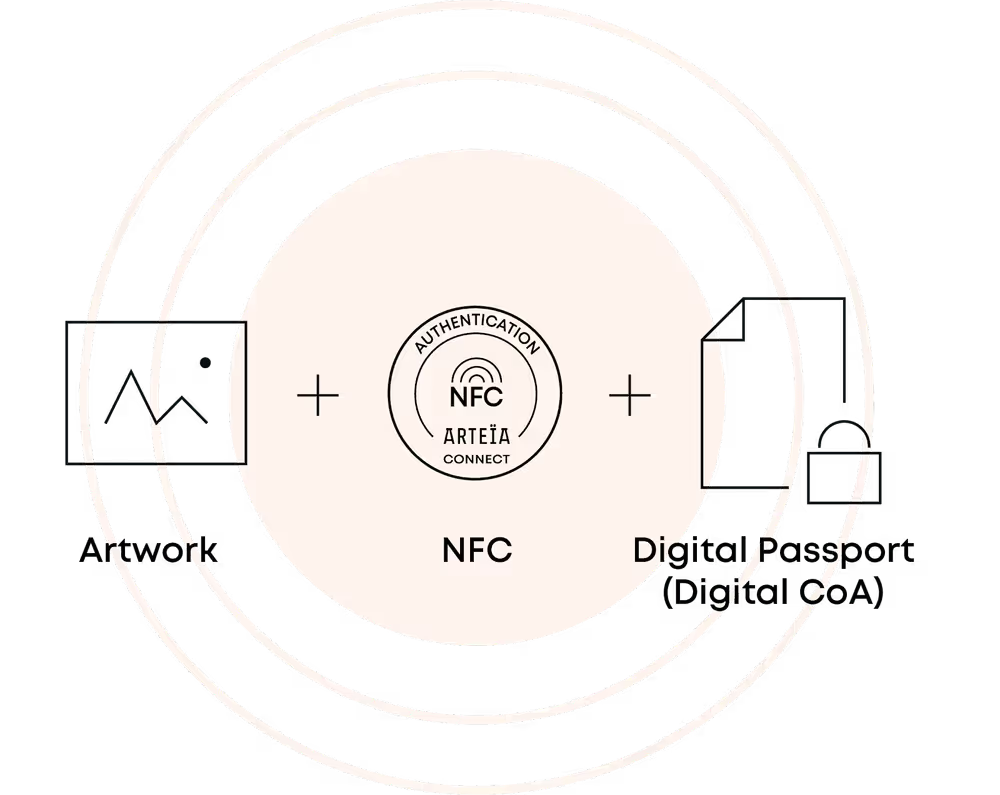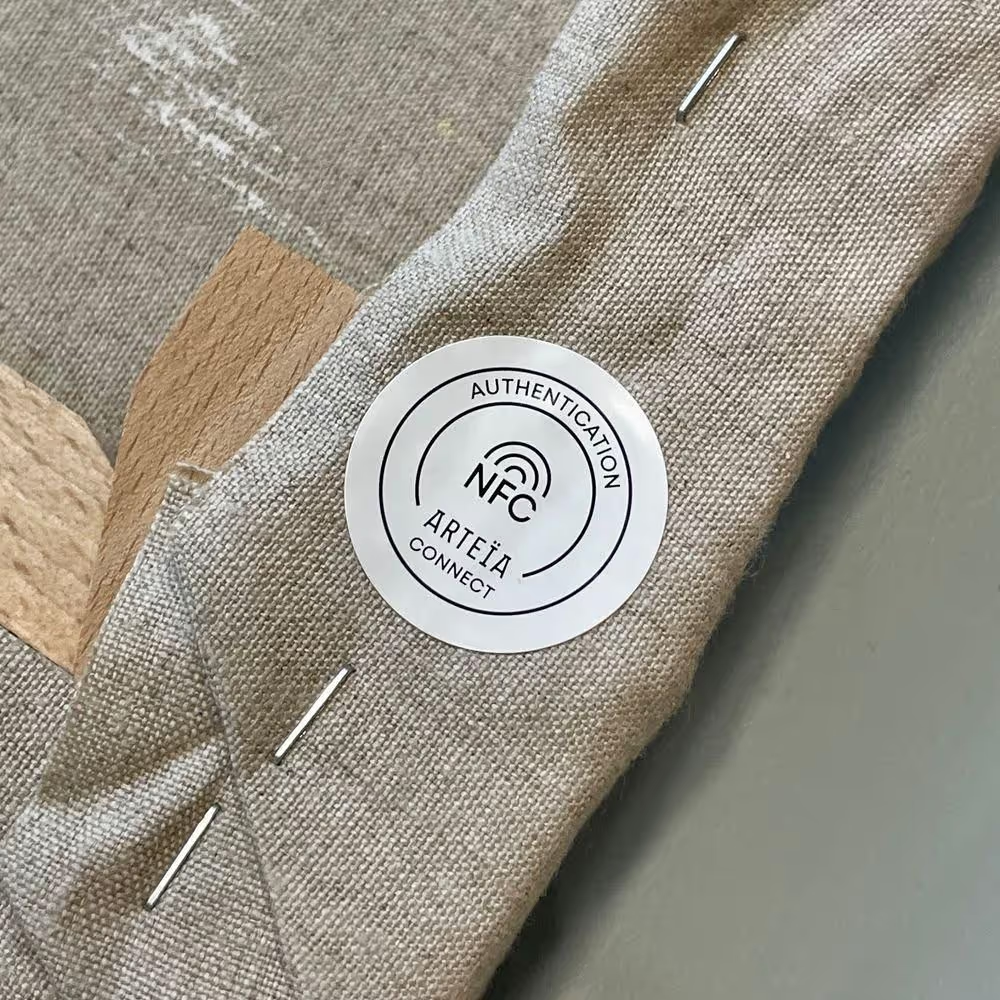Leading Auction House Millon to Use Arteïa and Tezos Blockchain to Authenticate Art Sales
Leading French auction house Millon will utilise Tezos blockchain-based digital traceability technology designed by Arteïa to verify the authenticity of artworks.
4 minute read

Arteïa’s digital identity card is linked to artworks using a NFC chip.
- Paris-based Millon uses Arteïa’s NFC chip to certify the digital traceability of auction sales lots at its Masters Decorative Arts of the 20th Century on November 7th.
- Arteïa also strengthens its collaboration with Galerie Christophe Gaillard by digitally certifying the authenticity of Pablo Tomek’s works on the Tezos blockchain.
Leading French auction house Millon will utilise Tezos blockchain-based digital traceability technology designed by Arteïa to verify the authenticity of artworks at its Masters Decorative Arts of the 20th Century on November 7th. Arteïa’s Connect solution offers the first tamper-proof digital passport for art anchored on the blockchain and securely linked to works via an encrypted near-field communication (NFC) tag.
The technology’s use by Millon and other leading art market specialists is testament to the innovative approach Arteïa has taken to tackle issues around fraud and authenticity in the art world. Millon’s use of Connect comes weeks after Galerie Christophe Gaillard announced it will use the technology to authenticate work by celebrated artist Pablo Tomek.
Arteïa co-founder Olivier Marian:
“Arteïa is proud to continue helping Artists, Galleries and now Auction houses to certify the authenticity of artworks in a unique way. For the first time a digital Certificate of Authenticity, or Digital Lot Description, is secured on Tezos Blockchain, and most importantly securely linked to the physical item is certified, thanks to our unique solution Arteïa Connect.”
Millon President Alexandre Millon:
“We are proud of the trust our customers have in us, and we transform it into a tangible commitment with this chip certifying that it is this object that we sold.”

Arteïa Connect presents countless advantages for collectors, artists, gallerists and auction houses. For the first time, a digital identity card generated by the platform is securely linked to the work of art itself using a unique NFC chip. The chip is impossible to duplicate and is designed in such a way that it self-destructs if someone tries to remove it. By increasing the traceability of the object on the secondary market, particularly in auctions, a tamper-proof chip ultimately increases the resale value of the work.
This digital identity card, created and linked to artworks, contains all the essential information such as the photo of the work, the name of the artist, the title, the date, the mediums, dimensions, and other elements to precisely identify and describe the work. It may also contain a secure digital copy of a certificate of authenticity or a CITES certificate if the artworks are sold with either.
When the NFC chip is scanned using a free Arteïa Authentication application, it provides partner specific access to a private VIP Room webpage. These rooms contain additional information about the artwork, the artist, videos, and sale details, thus establishing a new channel of interaction between the owner of the work and the sales entity.

For rapid identification of the work, the auction house and gallery can also automatically generate a QR Code associated with the digital certificate, which allows visitors to the exhibition, or people managing storage and shipping, to quickly scan the QR code and instantly access an identification web page.
In response to requests from galleries, Arteïa has also integrated the possibility of associating a resale contract with the work, making it possible to regulate future transactions. This contract can be linked to the NFC chip and specify conditions such as a period of prohibition on resale without first going through the gallery.
The Arteïa team has already worked with several artists and estates - including Hélène Delprat and Rachel de Joode - further advancing the types of artworks and archival material that can be made accessible and collectible to art collectors internationally. As more institutions adopt blockchain technology applying varying use cases, these partnerships demonstrate the practical, user-friendly and future-proofed application of blockchain technology in the commercial art market.